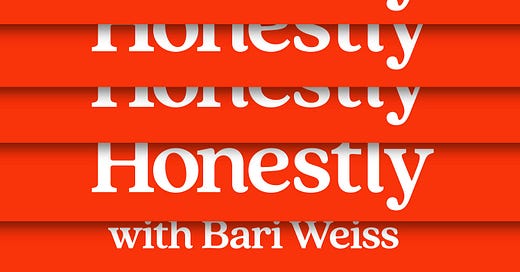Ken Burns is the most famous documentary filmmaker in America. He has made 35 films over the past 5 decades on historical and cultural subjects like the Civil War (which is the most streamed film in public television history), baseball, jazz, the Roosevelts, Jefferson, Vietnam, Benjamin Franklin, the Statue of Liberty, Muhammad Ali... and many, many more. But of his most recent film, The U.S. and The Holocaust, he said: "I will never work on a film more important than this one."
Even if you've seen many movies or read many books on the Holocaust, Burns' new film, which focuses on the U.S.'s response to the worst genocide in human history—what America did and didn't do, could have done and didn't, and the way the Nazis derived inspiration from ideas popular in America at the time—is bound to both horrify and surprise.
So today, on the eve of International Holocaust Remembrance Day, I talk to Burns about why a filmmaker of American history takes on the Holocaust and what this dark period of history tells us about the chasm between America's ideals and our actual reality. And later, we get into an intense and rich discussion about the responsibilities of telling American history, the uses and misuses of the Holocaust as a political metaphor, and what pitfalls we face when drawing parallels between history and now.
Learn more about your ad choices. Visit megaphone.fm/adchoices





I just listened to Bari’s interview with Ken Burns and found it repugnant. It all but obliterated my respect for, and trust in, Ken Burns as a filmmaker.
Burns waxes poetic about the importance of storytelling to adequately communicate all perspectives on a subject. He is not the first to make this point, and I agree. Our culture is based, to a great extent, on the perpetual telling of stories. He also adds this: “The writer Richard Powers…said, ‘The best arguments in the world won’t change a single person’s point of view. The only thing that can do that is a good story.’”
Ken Burns proves this is the case in this interview, in which he repeatedly cherry picks stories to advance his own political agenda, without making even a nod to the competing stories or, for that matter, the “best arguments.”
Here’s a remark that caused me to stop the recording and rewind to make sure that I had heard it correctly: “Is there murder in the United States by the State in the biggest and broadest sense of that word, against African-American citizens? Yep! And it still goes on to this day.” To Ken Burns it doesn’t matter that the data contradict this. The George Floyd story evidently looms large in his mind, and it's irrelevant to him that only about 15-20 unarmed black men are killed by police each year, and about double that number of unarmed white men. Pedantic individuals can debate about whether or not those numbers are proportional to overall population, or how they compare to relative police encounters, but it doesn’t matter. The numbers are TINY relative to the population and are indicative of nothing more than a few random, inexcusable tragedies. There is no valid statistical information in them, but that doesn’t matter to Mr. Burns….because he’s got his “story” and he’s sticking with it.
It gets a lot worse as the interview continues. Burns evidently uses the last three minutes of his production to exploit as many parallels as he can between the Holocaust and actions of people he doesn’t like in 2023… and they’re all on his opposite political side. This is a common practice among Progressives: Anyone who doesn’t toe the Progressive line is a “Nazi.” George W. Bush is a Nazi, Mitt Romney is a Nazi, Ron DeSantis is a Nazi, and, of course, Donald Trump is a Nazi, and the conservative members of the Supreme Court are all Nazis.
Mr. Burns has the comic audacity to state that drawing a direct line between the Holocaust and Donald Trump is “not political.” He talks about the “authoritarian playbook” and mentions one firing in the state of Florida, completely ignoring the scores of firings and cancellations being promoted under Leftist, “Woke” philosophy. No one is more aware of this hypocrisy than Bari, and I’m disappointed that she did not challenge him on this point.
To Burns, nothing HE says is political. It only becomes political is someone challenges him.
I had been looking forward to watching “The U.S. and the Holocaust,” but now I don’t know if I can trust anything Burns has to say. He has made it clear that he deliberately chooses the stories that suit him and will present them as fact. He has undermined his own credibility and integrity, and I can no longer assume that anything he tells me is not just pushing a narrative.
Having lost scores of relatives in the Holocaust, I don’t need to be convinced that Adolf Hitler was a murdering tyrant, but if Ken Burns tells me Hitler was a murdering tyrant, I’m not sure, at this point, that I would believe him without checking elsewhere first.
John L
In defense of Bari not pushing back harder: If she doesn’t give free platform for people, they won’t do interviews with her and don’t reveal themselves for who they are and what their agendas are. Now we know Ken Burns’ intentions. Thank Bari and share far and wide for as long as we are still allowed freedom of speech.